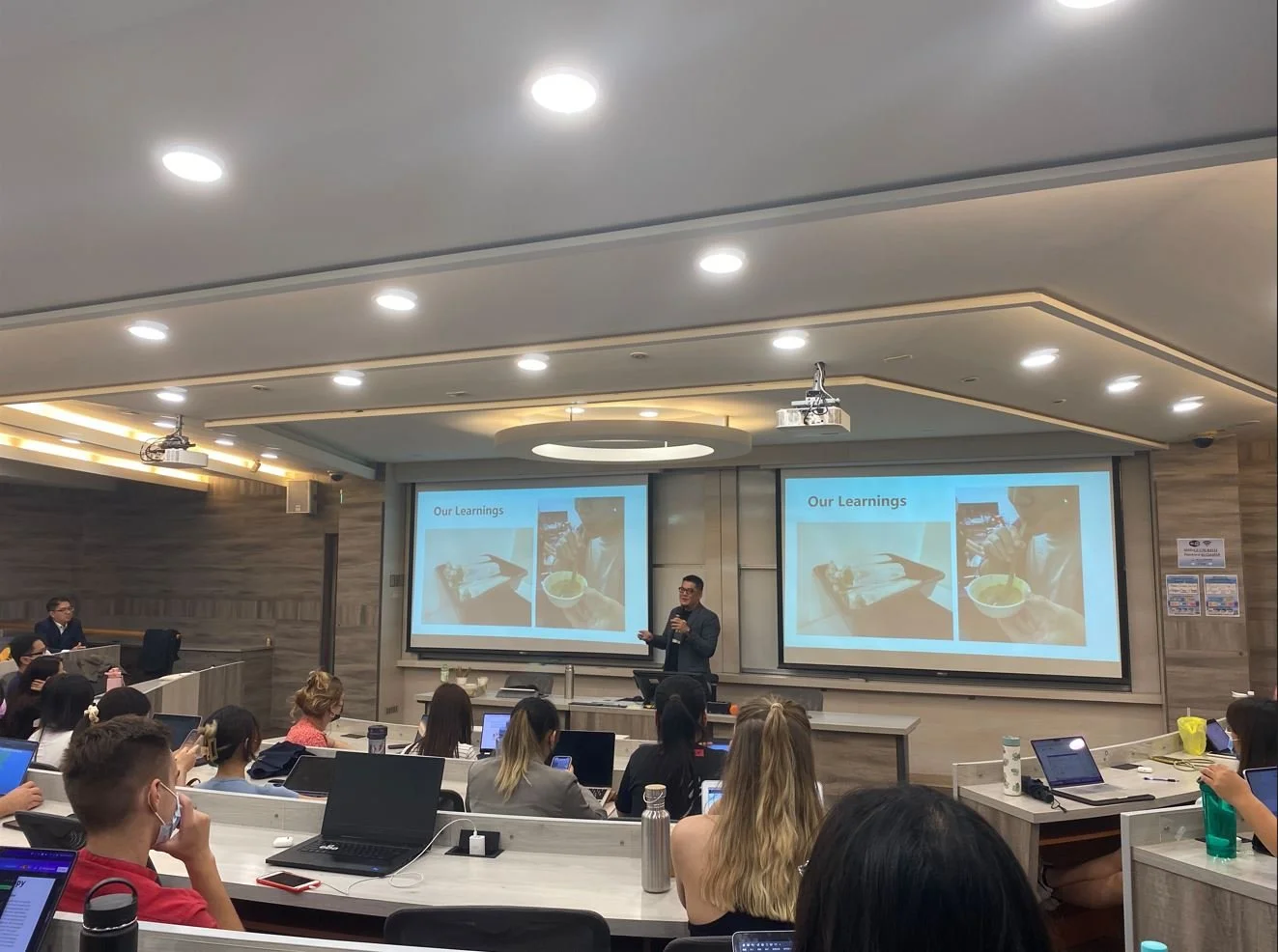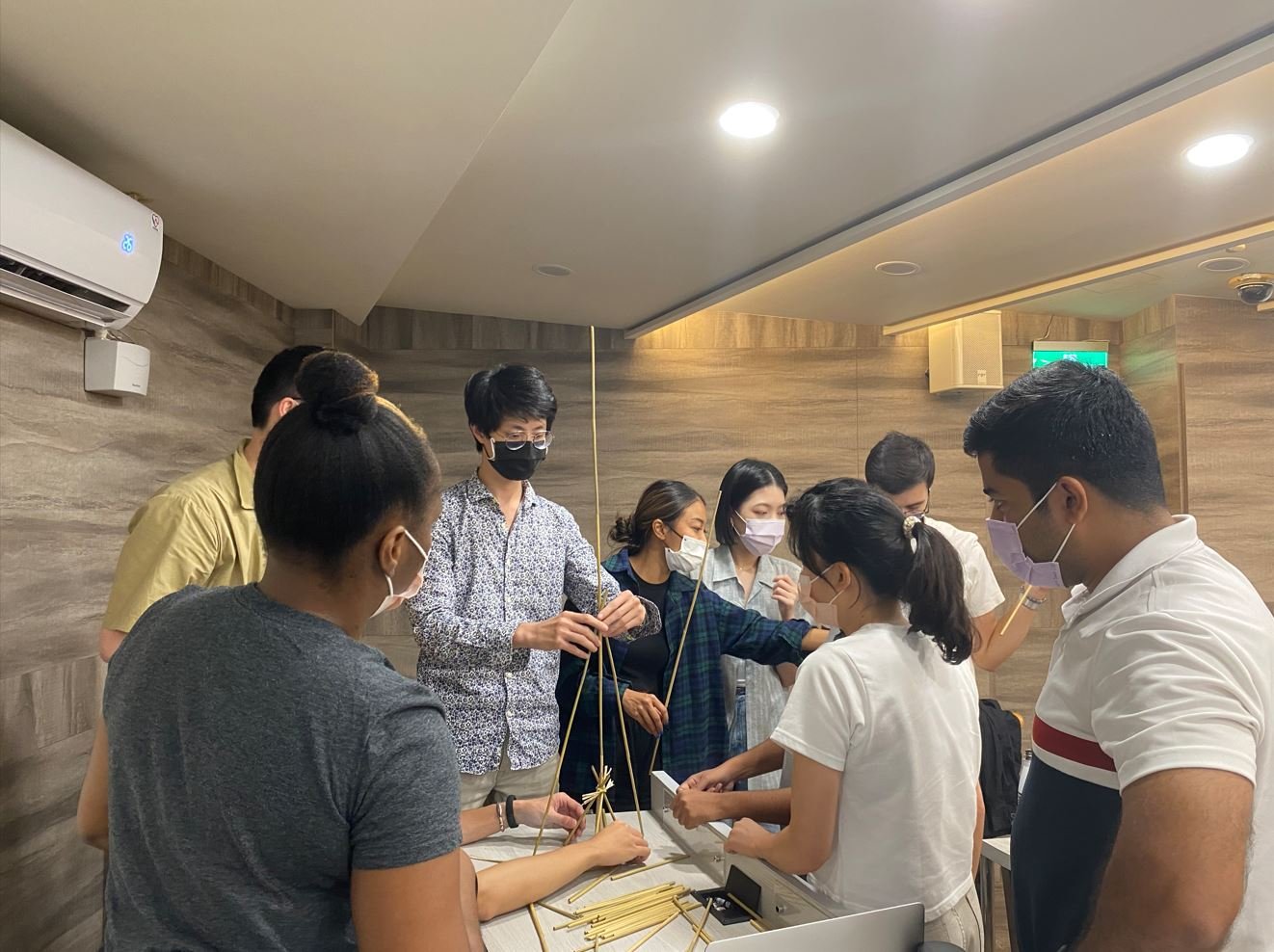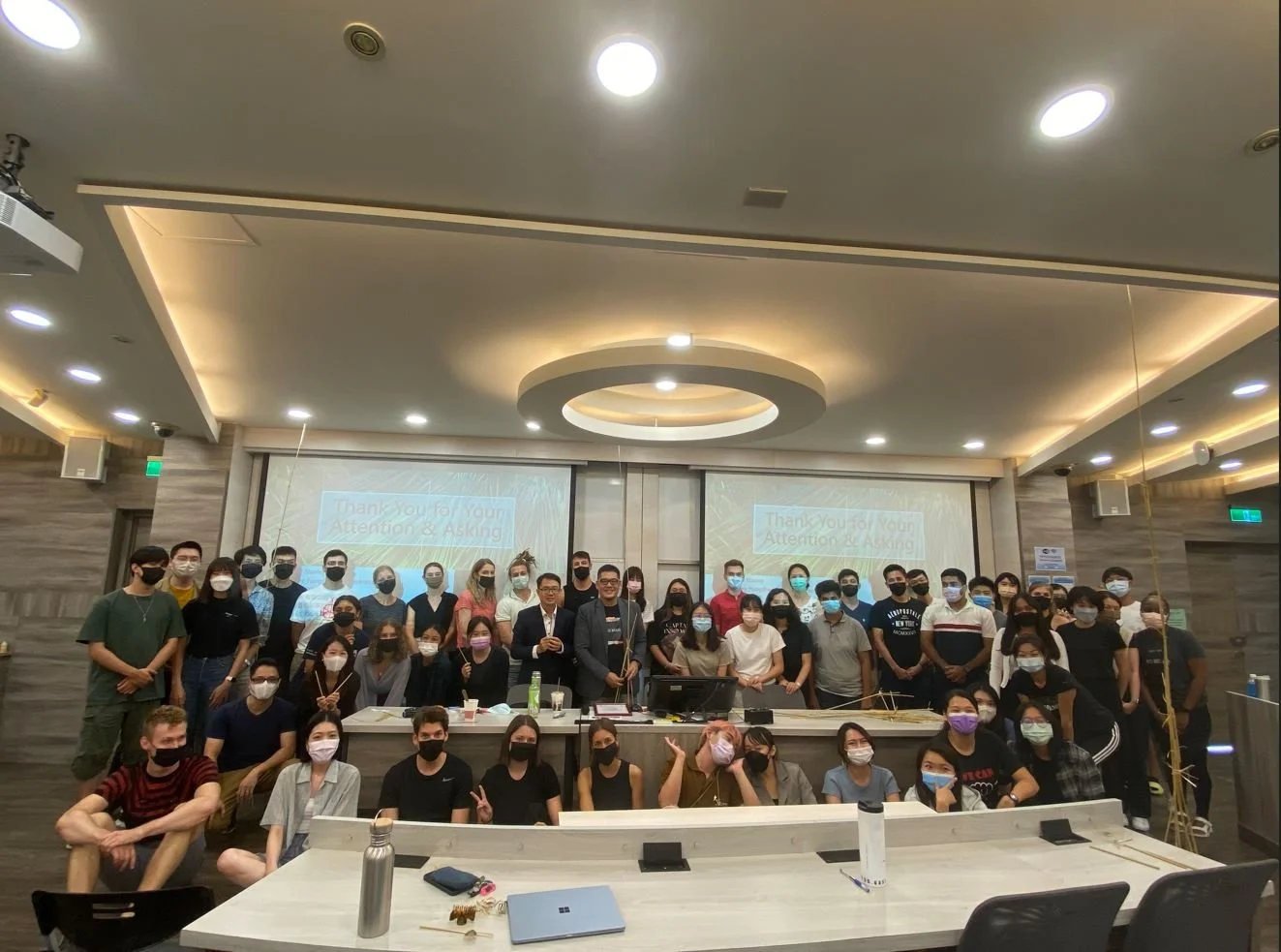[Speech] A Wonderful Green Venture – Small Straws Trigger Big Cycles
Written by Thuy Nguyen / Edited by Sam Chen
On Wednesday, October 12th, 2022, students of the Business Ethics and Social Responsibility class (IBMBA) welcomed Stanley Hung from Wonder Greener with a guest lecture on the topic of “A Wonderful Green Venture – Small Straws Trigger Big Cycles”. Mr. Stanley opened his speech with a short introduction about himself.
Mr. Stanley got his Bachelor’s Degree from National Yang Ming University and then two Master’s Degrees from National Cheng Chi University and Taipei Medical University. He is now doing his doctoral study at National Cheng Chi University. His expertise includes social business, food and agricultural technology, IP commercialization, and asset investment and management. Before Wonder Greener, he had a great deal of experience in many companies. He started his career as a special assistant to the CEO. During his professional career, he also worked for two other companies, including TUV Rheinland Group and Hsinshi Asset Investment & Management.
He shared his "Wonder Greener" social enterprise with students in the first part. The company's vision is to provide the value of sustainability through the social business model with product/tech innovation of grass straws. He briefly explained the Taiwanese market size and problems of paper straws, which is also the primary motivation for the development of the business. The grass straw is made of Lepironia and the process of making it is notable due to the penetration stage, only a few people would’ve imagined plants like Lepironia could be an alternative choice to straws after being selected and sanitized. Wonder Greener with triple advantages of "Green, Economy, Convenience" is excelling in the market. It differentiates by its R&D in cultivation and automation. Stanley also illustrated his current journey to Belize to learn more about grass and market potential.
In the second part, he let students play a game to understand the mechanism behind a business model. Students were given grass straws; from these straws, they had to build up the highest structure with Lepironia grass straws. Five groups had different ideas and ended up successfully in their own ways. A business model needs a key process from key resources to customer value proposition (CVP), which is not an easy task for any company worldwide. From the game, students knew that the most important thing for a successful business is the order or priority of resources.
In the last part, many students were excited to share their thoughts and asked Stanley questions about his social enterprise. They learned more about how start-ups can get better connections with investors and the plan to expand the business from Stanley. From this speech with hand-on activities, students got the chance to learn more about ethical issues and eco-friendly innovations within the global business context, and it's awe-inspiring that a straw made from specific plants could be used as a biodegradable substitution for plastic straws, contributing to form a greener utensil industry, even holding the great potential to make a positive impact to help cutting down the plastic usage globally. In conclusion, it was a fascinating lesson regarding the ideology of sustainability for both professors and students.



